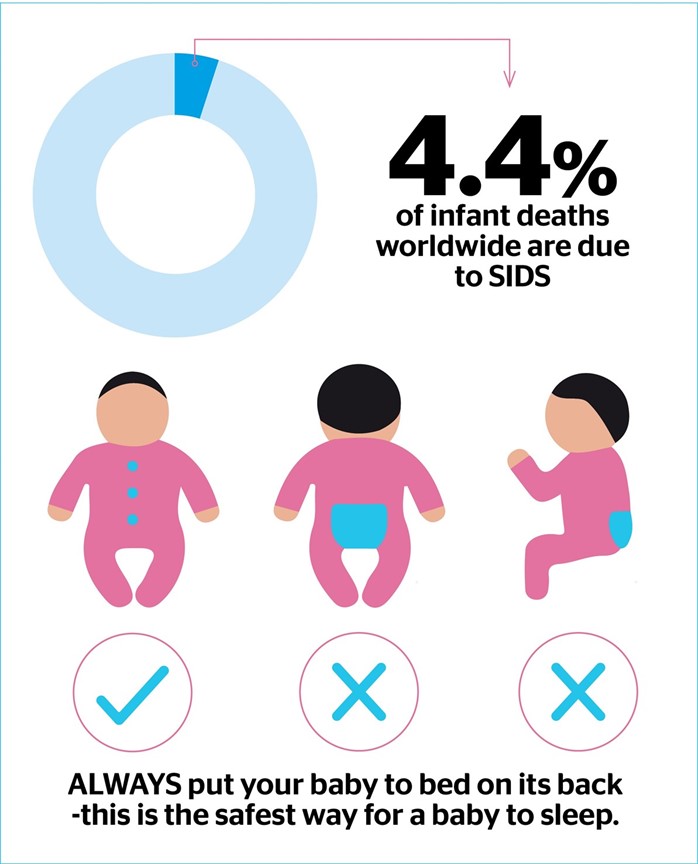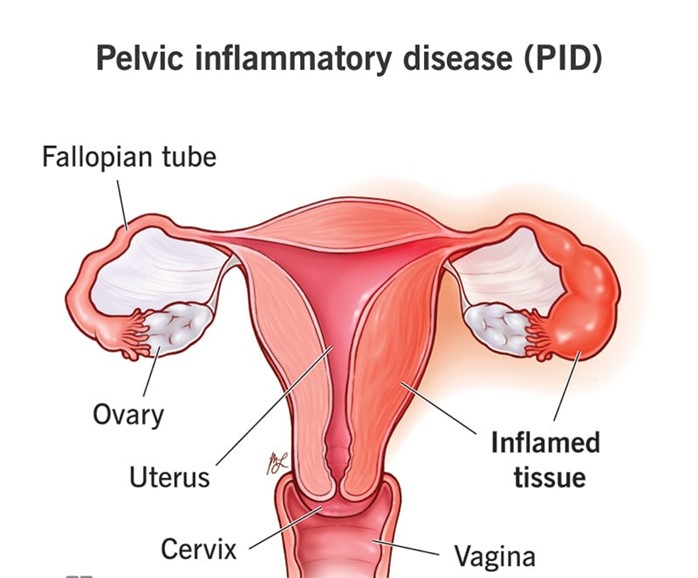Which factors are the main causes of the high infant mortality rate? Select all that apply.
Cardiac complications
Necrotizing enterocolitis
Viral infections
Prematurity
Sudden infant death syndrome
Low birth weight
Correct Answer : B,D,E,F
Choice A: Cardiac complications are not the correct answer because they are not the main cause of the high infant mortality rate. Cardiac complications are problems that affect the heart or blood vessels of the newborn, such as congenital heart defects, arrhythmias, or heart failure. They can cause serious symptoms such as cyanosis, difficulty breathing, or poor feeding. However, they account for only about 5% of all infant deaths in the United States.
Choice B: Necrotizing enterocolitis is the correct answer because it is the main cause of the high infant mortality rate. Necrotizing enterocolitis is a condition that causes inflammation and death of the intestinal tissue of the newborn, leading to infection, perforation, or sepsis. It can cause symptoms such as abdominal distension, bloody stools, or shock. It is more common in premature or low birth weight infants and accounts for about 10% of all neonatal deaths.
Choice C: Viral infections are not the correct answer because they are not the main cause of the high infant mortality rate. Viral infections are diseases that are caused by viruses that invade the cells of the newborn, such as respiratory syncytial virus (RSV), cytomegalovirus (CMV), or herpes simplex virus (HSV). They can cause symptoms such as fever, cough, rash, or blisters. However, they account for only about 2% of all infant deaths in the United States.
Choice D: Prematurity is the correct answer because it is the main cause of the high infant mortality rate. Prematurity is a condition that occurs when a baby is born before 37 weeks of gestation, which is considered full-term. Premature babies are at risk of developing various complications such as respiratory distress syndrome, intraventricular hemorrhage, or retinopathy of prematurity. Prematurity accounts for about 35% of all infant deaths in the United States.
Choice E: Sudden infant death syndrome is the correct answer because it is the main cause of the high infant mortality rate. Sudden infant death syndrome is a condition that causes the unexpected and unexplained death of an apparently healthy baby during sleep. The exact cause of sudden infant death syndrome is unknown, but some risk factors include sleeping on the stomach, overheating, smoking exposure, or soft bedding. Sudden infant death syndrome accounts for about 15% of all infant deaths in the United States.
Choice F: Low birth weight is the correct answer because it is the main cause of the high infant mortality rate. Low birth weight is a condition that occurs when a baby is born weighing less than 2,500 grams (5 pounds 8 ounces). Low birth weight babies are at risk of developing various complications such as hypothermia, hypoglycemia, or jaundice. Low birth weight accounts for about 25% of all infant deaths in the United States.

Nursing Test Bank
Naxlex Comprehensive Predictor Exams
Related Questions
Correct Answer is C
Explanation
Choice A: Ask the client's English-speaking family member to translate. This action is not appropriate because it may compromise the accuracy and confidentiality of the information. The family member may not have sufficient medical knowledge or vocabulary to translate correctly or may omit or alter some details due to personal bias or embarrassment.
Choice B: Use a translation dictionary to reinforce the teaching. This action is not appropriate because it may be time-consuming and ineffective. The translation dictionary may not have all the relevant terms or phrases or may provide inaccurate or ambiguous translations. The nurse may also lose the client's attention or interest by relying on the dictionary.
Choice C: Seek assistance from a facility-approved interpreter. This action is appropriate because it ensures the quality and clarity of the communication. The facility-approved interpreter is a professional who has the skills and training to provide accurate and unbiased translation of the information. The interpreter can also facilitate the interaction and feedback between the nurse and the client.
Choice D: Ask an assistive personnel (AP) who speaks the client's language to serve as an interpreter. This action is not appropriate because it may violate the scope of practice and ethical standards of the AP. The AP may not have the qualifications or authority to provide interpretation services or may have a conflict of interest or role confusion with the client. The AP may also have other duties or responsibilities that may interfere with the interpretation process.

Correct Answer is B
Explanation
Choice A: Cancer is not the correct answer because it is not the leading cause of death among women. According to the World Health Organization, cancer accounted for 15% of all deaths among women in 2019.
Choice B: Heart Disease is the correct answer because it is the leading cause of death among women worldwide. According to the World Health Organization, heart disease accounted for 21% of all deaths among women in 2019. Many women are unaware of the risk factors and symptoms of heart disease, and may not seek timely medical attention. Therefore, educational programs that raise awareness and promote the prevention of heart disease are a priority for women's health.
Choice C: Diabetes is not the correct answer because it is not the leading cause of death among women. According to the World Health Organization, diabetes accounted for 4% of all deaths among women in 2019. However, diabetes can increase the risk of developing other complications such as heart disease, kidney disease, and blindness. Therefore, educational programs that teach women how to manage their blood sugar levels and prevent complications are important for women's health.
Choice D: Smoking is not the correct answer because it is not a condition, but a risk factor for many diseases. Smoking can increase the risk of developing lung cancer, heart disease, stroke, and chronic obstructive pulmonary disease. Therefore, educational programs that help women quit smoking and avoid exposure to secondhand smoke are beneficial for women's health.

Whether you are a student looking to ace your exams or a practicing nurse seeking to enhance your expertise , our nursing education contents will empower you with the confidence and competence to make a difference in the lives of patients and become a respected leader in the healthcare field.
Visit Naxlex, invest in your future and unlock endless possibilities with our unparalleled nursing education contents today
Report Wrong Answer on the Current Question
Do you disagree with the answer? If yes, what is your expected answer? Explain.
Kindly be descriptive with the issue you are facing.
